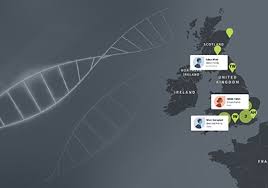Unveiling Ancestral Roots: Navigating Adoption Records for Genealogical Insights
Exploring Adoption Records for Ancestry Research
Adoption records can be a valuable resource for individuals delving into their family history. While adoption records are often sealed to protect the privacy of those involved, there are ways to navigate these records and uncover important information about one’s ancestry.
Adoption records typically contain details such as the birth parents’ names, the adoptee’s original birth name, and sometimes even medical history. By accessing these records, individuals can gain insight into their biological roots and better understand their family heritage.
Genealogical research involving adoption records requires patience and perseverance. It may involve contacting adoption agencies, state archives, or utilizing online databases specifically designed for accessing adoption-related information.
For many individuals, discovering their adoption records can be a deeply emotional journey. It can provide a sense of closure, identity, and connection to their biological lineage. By exploring adoption records for ancestry research, individuals have the opportunity to fill in missing pieces of their family tree and gain a deeper understanding of their own story.
Whether you are just beginning your genealogical journey or seeking to expand your existing family tree, considering adoption records as part of your research process can lead to meaningful discoveries and a greater appreciation for your ancestral heritage.
Understanding Adoption and Ancestry: Accessing Records, Displaying Adoptions, and Using DNA Tests
- Does Ancestry have adoption records?
- Is there a way to show adoption on Ancestry?
- Are adoption records ever made public?
- Can you do AncestryDNA if adopted?
Does Ancestry have adoption records?
When it comes to adoption records, Ancestry, a popular genealogy platform, does not typically have direct access to adoption records due to the sensitive nature of such documents. Adoption records are often confidential and subject to strict privacy laws to protect the identities of those involved. However, Ancestry may provide resources and guidance on how to navigate adoption records through other channels such as state archives, adoption agencies, or specialized databases. While Ancestry itself may not house adoption records, it can serve as a valuable tool in helping individuals uncover their family history by offering access to a wide range of historical documents and genealogical resources.
Is there a way to show adoption on Ancestry?
When it comes to displaying adoption information on Ancestry, there are some considerations to keep in mind. While Ancestry does not have a specific feature for indicating adoption status, individuals can still document and include this important aspect of their family history in their family tree. One common approach is to add explanatory notes or custom fields within the individual’s profile to indicate their adopted status. Additionally, including details about biological and adoptive parents can help provide a comprehensive view of the individual’s ancestry. By utilizing these methods, individuals can ensure that their family tree on Ancestry accurately reflects the complexities of adoption within their lineage.
Are adoption records ever made public?
The accessibility of adoption records varies significantly depending on the laws and regulations of the specific state or country involved. In some jurisdictions, adoption records are sealed to protect the privacy of all parties involved, making them inaccessible to the general public. However, there are instances where adoption records can be unsealed through legal processes or under certain circumstances, allowing individuals to access valuable information about their biological heritage. It is essential for those interested in exploring adoption records for ancestry research to research the laws governing adoption record access in their particular area and seek guidance from professionals experienced in navigating these complex legalities.
Can you do AncestryDNA if adopted?
For individuals who are adopted and interested in exploring their ancestry through AncestryDNA, the answer is yes. AncestryDNA can be a powerful tool for adoptees seeking to uncover their genetic heritage and connect with biological relatives. By providing a DNA sample, adoptees can access a vast database of genetic information that may reveal valuable insights into their family background, ethnicity, and potential matches with biological relatives. This innovative technology has opened up new possibilities for adoptees to piece together their ancestral puzzle and discover more about their roots through DNA analysis.

